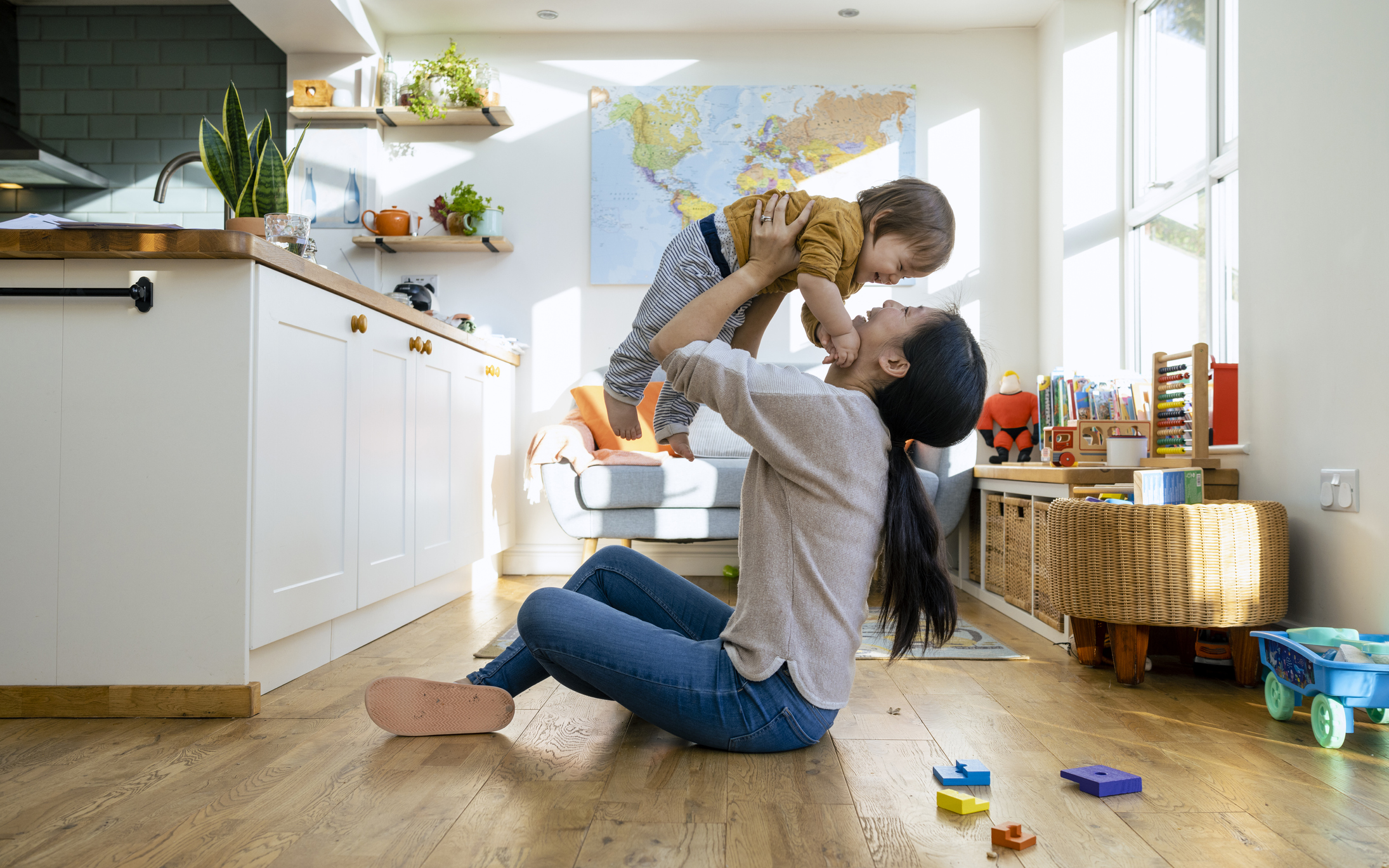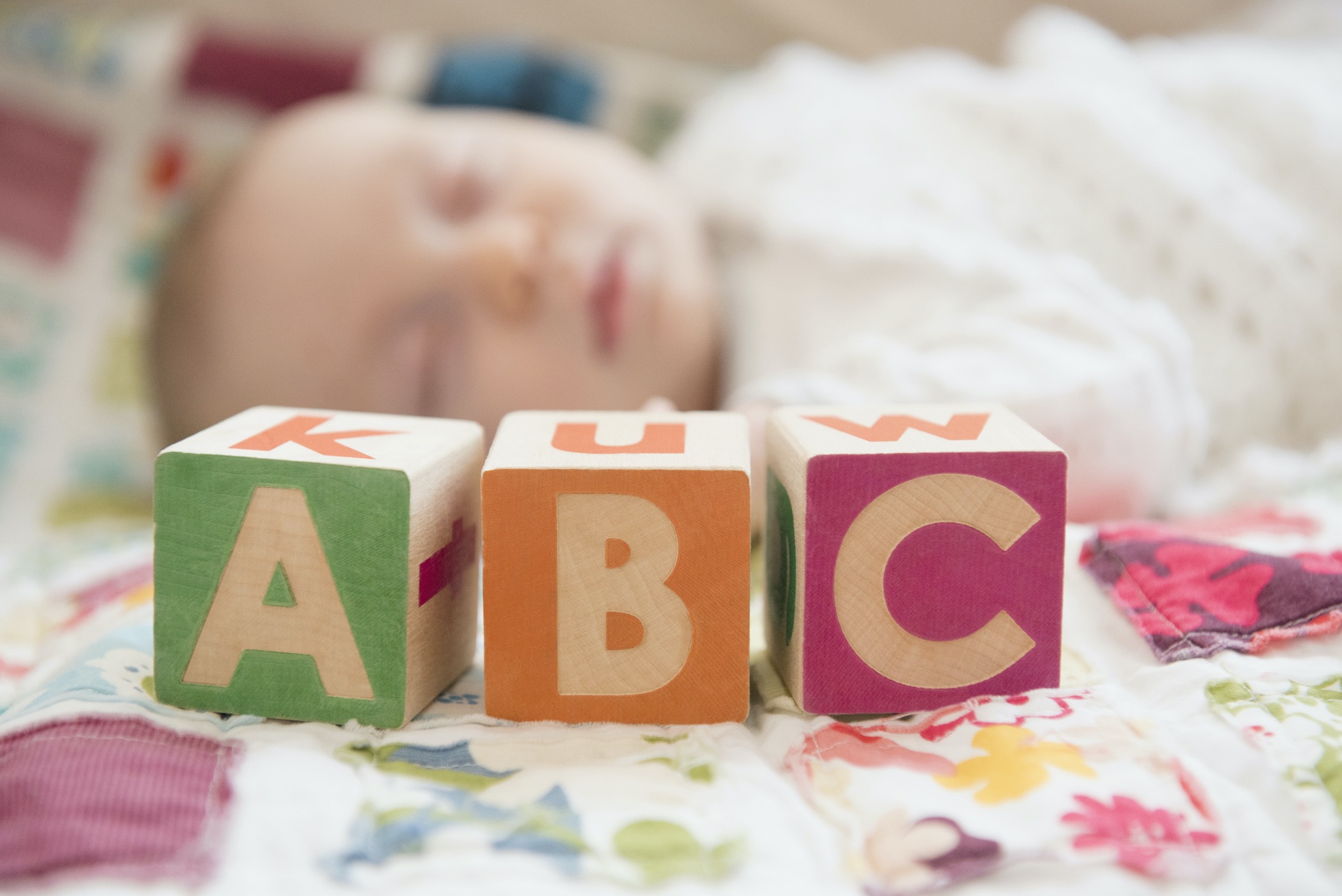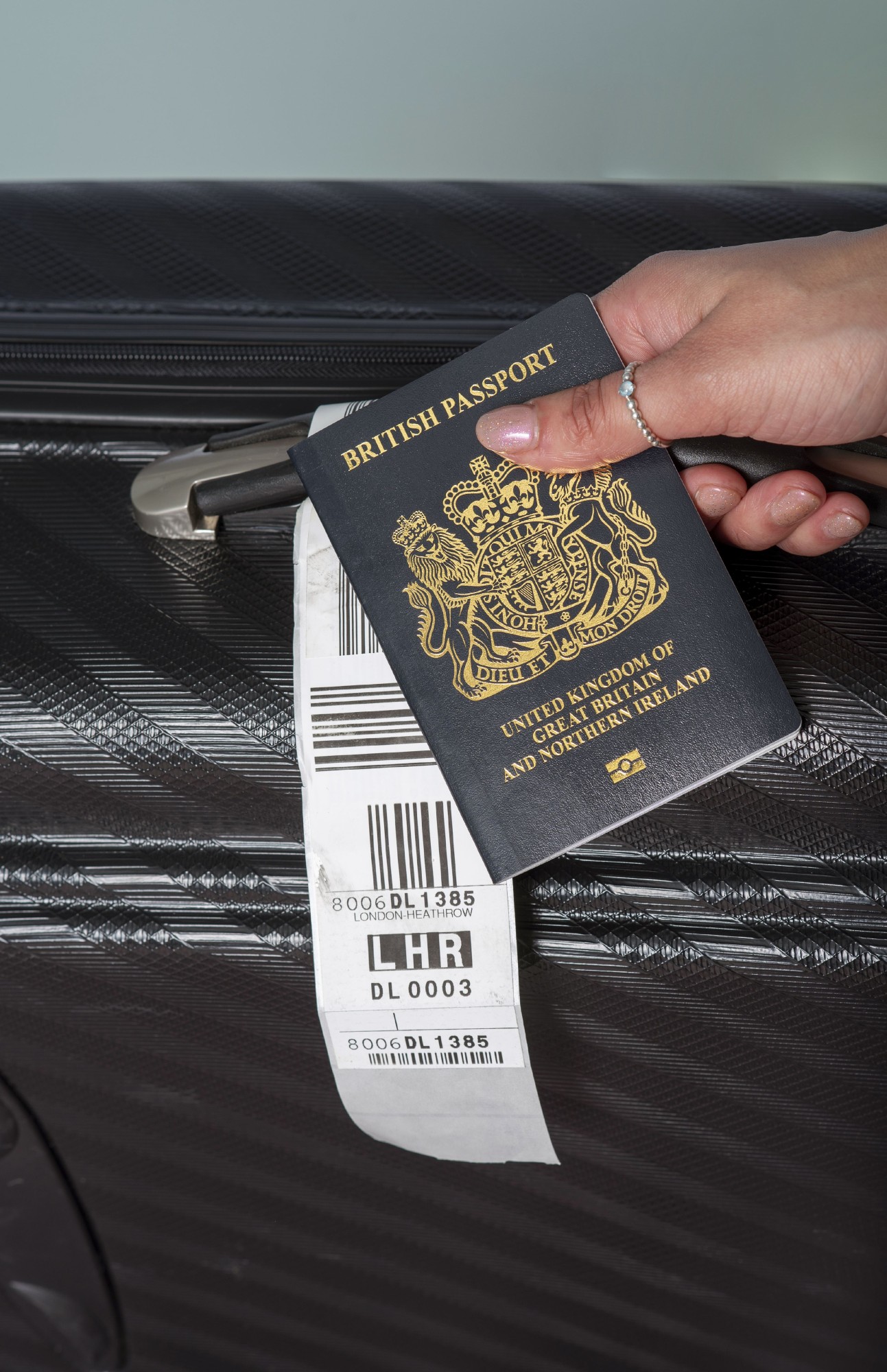
Having a child is wonderful but the UK’s childcare system is one of the most expensive in the developed world. So how much does it cost to raise a child here?
The average amount of money spent on raising a child from birth to 18 in the UK – including housing and childcare costs – is £223,256, according to the latest research from investment platform Moneyfarm. That works out at about £12,400 a year, or £1,030 a month.
Parents who need additional childcare during school holidays are facing another stretch on their budgets. Six weeks of holiday care costs an average of £943 per child, according to the charity Coram Family and Childcare, with families in central London paying up to 25% more than those in more rural areas.
The good news is there are lots of ways to keep the costs of raising your child down – and it all starts with planning before your little one even arrives.
This article will cover:
- Average childcare costs
- Childcare changes announced in 2023
- If you’re on Universal Credit, you could receive extra financial support towards childcare costs
- Maternity and paternity leave – how much will I get?
- What to buy before the baby arrives
- What to buy when you have a toddler
- Cost-cutting tips for parents
Childcare costs
Childcare fees make up a big percentage of the cost of raising a child if you go back to work. Government figures suggest parents typically spend £270 a week for 50 hours of full time care for a child under two in England and Wales.
As your child gets older, you may also sign them up to music or sports classes and there may be regular trips to the cinema or theatre, too.
Moneyfarm says parents spend an average of £14,500 on enriching activities for their children between the ages of four and 18.
| Age | Total average cost in 2023 |
| Pregnancy | £4,071 |
| 0-3 years old | £48,270 |
| 4-5 | £22,772 |
| 6-8 | £32,954 |
| 9-11 | £30,465 |
| 12-14 | £27,642 |
| 15-18 | £57,082 |
Summer holiday childcare costs
Like everything, the cost of holiday childcare is on the rise.
While the average cost is £943 per child, according to Coram Family and Childcare, there are huge disparities in price depending on where you are in the UK. Parents in Wales have seen the biggest increase with six weeks of childcare costing almost £1,000.
The type of childcare you choose will also have an impact the cost. Private holiday clubs are almost a third more expensive than ones run by local authorities.
This is what you might expect to pay per week for summer holiday childcare in your area.
- England: £156
- Wales: £168
- Scotland: £157
- Inner London: £177
- East Midlands: £163
- West Midlands: £155
- North East: £152
- North West: £145
Source: Coram Family and Childcare
You may be able to reduce your bill by up to 20% by applying for tax-free childcare.
Read more: Cheap and free days out with the kids this summer
Childcare changes announced in 2023
The government has also recently increased the amount of financial support towards childcare for parents on universal credit by 47%.
It has also increased the number of two-year-old children who can be looked after by an approved childminder can look after at the same time. This is known as the staff-to-child ratio. From September 2023, one member of staff will be allowed to look after five children, up from four children which is the current rule. This is already the case in Scotland.
Jeremy Hunt’s 2023 budget also included plans to expand 30-hours free childcare to children aged between nine months and two years in England. This support is currently only available to three-and four-year-olds. It will apply in households where all parents are working at least 16 hours a week.
The extension will be gradually rolled out from April 2024:
- April 2024: Two-year-olds with parents working at least 16 hours a week will be eligible for 15 free hours of childcare a week
- September 2024: Those 15 free hours will be extended to all children aged between nine months and two years old
- September 2025: All children under the age of five will be eligible for 30 free hours of childcare a week
When your baby reaches the age of three, you can start claiming 15 – or in some case up to 30 – hours’ free childcare a week. Be aware you get the free hours the term after your child turns three, not on their third birthday.
Primary school starts the September after the child turns four, at which point your costs could drop to around £60 a week if you only need after-school care.
Read more: How timing the birth of your child could save you £5,500
If you’re on Universal Credit, you could receive extra financial support towards childcare costs
If you are eligible for universal credit, you may be able to claim up to 85% of your childcare costs back from the government. You – and your partner if you have one – will usually need to be working or have a job offer to qualify for the government benefit.
The government has also increased the amount of financial support available. If eligible, you can now claim up to £951 a month for one child and £1,630 for two children or more. This marks a 47% increase from the previous amounts parents could claim.
Eligible parents can now get up to 85% of the first month’s costs back before the following month’s bills are due. This means parents should be able to pay for childcare a month in advance.
To receive the support, you’ll need to submit information regarding your childcare costs as part of your universal credit claim.
Maternity and paternity leave – how much will I get?
Having a baby isn’t just expensive because of all the things you have to buy, but the time off work also means there is less money coming in.
- Statutory maternity leave
– lasts 52 weeks
– it only lasts for 39 weeks
– you get 90% of your average weekly earnings for the first six weeks, then either the same amount or £172.48 a week (whichever is lower) for the next 33 weeks
– some companies offer more, so check with your HR department - Statutory paternity leave
– as long as your partner has been in their job for nine months, they should qualify for two weeks of paternity leave (male or female in a same-sex couple) at 90% of their average weekly earnings or £172.48 a week (whichever is lower).
– some employers offer full pay during the fortnight so it’s a good idea to check. - Shared parental leave
– this allows couples to split up to 50 weeks of leave, and up to 37 weeks of pay, between them before their baby’s first birthday.
What to buy when expecting a baby
You could literally spend thousands of pounds kitting out your baby. But the advice for new parents is to be savvy shoppers.
While there are some essentials, lots of things really aren’t necessary and many more you can buy second hand. You can use the money you save to invest for your child’s future instead.
Read more: The high-income child benefit charge: What you need to know
The essentials
- A car seat
This has to be new because you need to know the seat has never been damaged. Average cost: £100 and £200. - Clothes
Don’t spend too much on baby clothing; babies grow fast. Additionally, you will probably be given some cute baby outfits by friends and family. But do get several onesies, and buy plenty of bed linen and muslins. Average cost: £50 – £60 - Nappies
In the first few weeks, disposable nappies tend to be easiest. Buy in bulk! Average cost: £12 – £24 in the first month - Food
If you’re breastfeeding, you will need easy-access underwear and clothing, plus maybe a breast-pump and a few bottles. Breast pumps can cost anything from around £25 to £500, depending on whether you want manual or electric and how discrete or flexible you want your pump to be (although don’t buy too much in case you can’t breastfeed for long). For bottle feeding, you’ll need formula milk, sterilising equipment, and bottles. Average cost: £50 – £100 a month. - Moses basket
Your baby will sleep in a Moses basket or crib in your room for the first six months or so. You can buy second hand, just invest in a new mattress. Average cost: £70 for a new basket, £20 for a mattress - Baby bath
A large washing up bowl will do, but a baby bath on a stand can save your back. Average cost: £10-£50 - Pram
A travel system including a car seat, carrycot, and pram can work out cheaper overall. Average cost: £150 – £1,000 - Changing bag
You’ll need somewhere to put everything when you’re out and about, but a normal rucksack or holdall is fine. Average cost: £25
The Non-Essentials
- Play mat
This is important for development, but a blanket with a few toys does the same job. Average cost: £25 - Baby bouncer
Somewhere safe to put your baby while you go to the loo! Average cost: £20 – £300 - Changing mat
These are handy and easy to clean, although a folded up towel works just as well. Average cost: £7
What to buy during the early days
First smile, first laugh, first eight-hour sleep (hopefully) – there are many incredible moments in the first six months. Lots more things to buy too!

Equipment that you will need
Certain items will seem important in the first few months. They don’t need to cost the earth, though.
- Cot – a second-hand one with a new mattress is a great shout. A cot-bed, which turns into a toddler bed, is even better.
- Average cost: From £70 new
- Baby monitor – you’ll probably need a monitor once your baby starts sleeping in his or her own room. See if any local mums have one they don’t use anymore hiding in a cupboard.
- Average cost: £20 – £250
- Nappies – washable nappies are an eco-friendly way to get around the estimated £261 a year you will otherwise spend. In my experience, they’re great for daytime usage at home, not so great for travelling or overnight.
- Average cost: £150
- Stair gates – once your baby starts crawling, you need to secure the stairs to prevent accidents.
- Average cost: £15 – £50
- High chair – this is vital at mealtimes, but you can get one second-hand.
- Average cost: £30 – £300 new
- Playpen – this isn’t essential, but it is useful. Why not use a travel cot as a play-pen – then it can double up as a bed when you go away?
- Average cost: £30

Toddling and beyond
While food bills and the cost of activities will go up over time, other costs such as childcare should start to fall from after the age of three.
For help with budgeting, take a look at our guides to creating a family budget, and child benefit.
Read more: ‘The cost of childcare wiped out my take-home pay’
Food
Most babies start eating proper food at around six months. You might be surprised by the difference this makes to your weekly food shop.
Ready-made pouches are undoubtedly convenient when you’re on the go, but cooking their meals yourself gives you more control and should work out cheaper too.
The quicker you can get your child eating more or less the same as you, the easier it is to save.
Cost-cutting tips for parents
While having a baby can be expensive, there are plenty of ways you can cut costs. Here are some top tips:
- Use a free baby costs calculator to keep tabs on how much you will spend.
- Look out for special offers. I got a £150 car seat for £50 by choosing a less popular colour (my son definitely does not care!).
- Join local parents’ groups online. They are a great source of free and cut-price gear.
- Don’t buy too many toys – that’s what friends and family are for.
- You’re going to be doing lots of washing so if your washing machine is on its last legs, get a new one in the sales.
- Read our article on the cost of childcare: what help is available?
- If you earn under £60,000, apply for child benefit as soon as you can after the birth. You will probably get a leaflet about it at the hospital or when you register the birth.
- See if you can borrow items you will only need short term, such as stair gates, from friends.
- If you choose reusable nappies, check whether your local council offers a voucher that can go towards paying for them, or a free nappy kit.
- New mums are entitled to free prescriptions and dental care from the moment they become pregnant until their baby’s first birthday. So get your teeth checked before your baby turns one.
- Keep buying second-hand clothes – these are really handy for nursery, where your child will probably get covered in food and paint. Keep an eye out for second-hand toys too.
- Do babysitting swaps with local parents.
- Sell on anything you no longer need.
- Your local library can often be the best place to find free activities, as well as books and toys to borrow.
- Apps such as Mush can be a good way to track down cost-effective classes and groups.
Read more: Cost of living crisis has put our plans to have children on hold
Important information
Some of the products promoted are from our affiliate partners from whom we receive compensation. While we aim to feature some of the best products available, we cannot review every product on the market.



